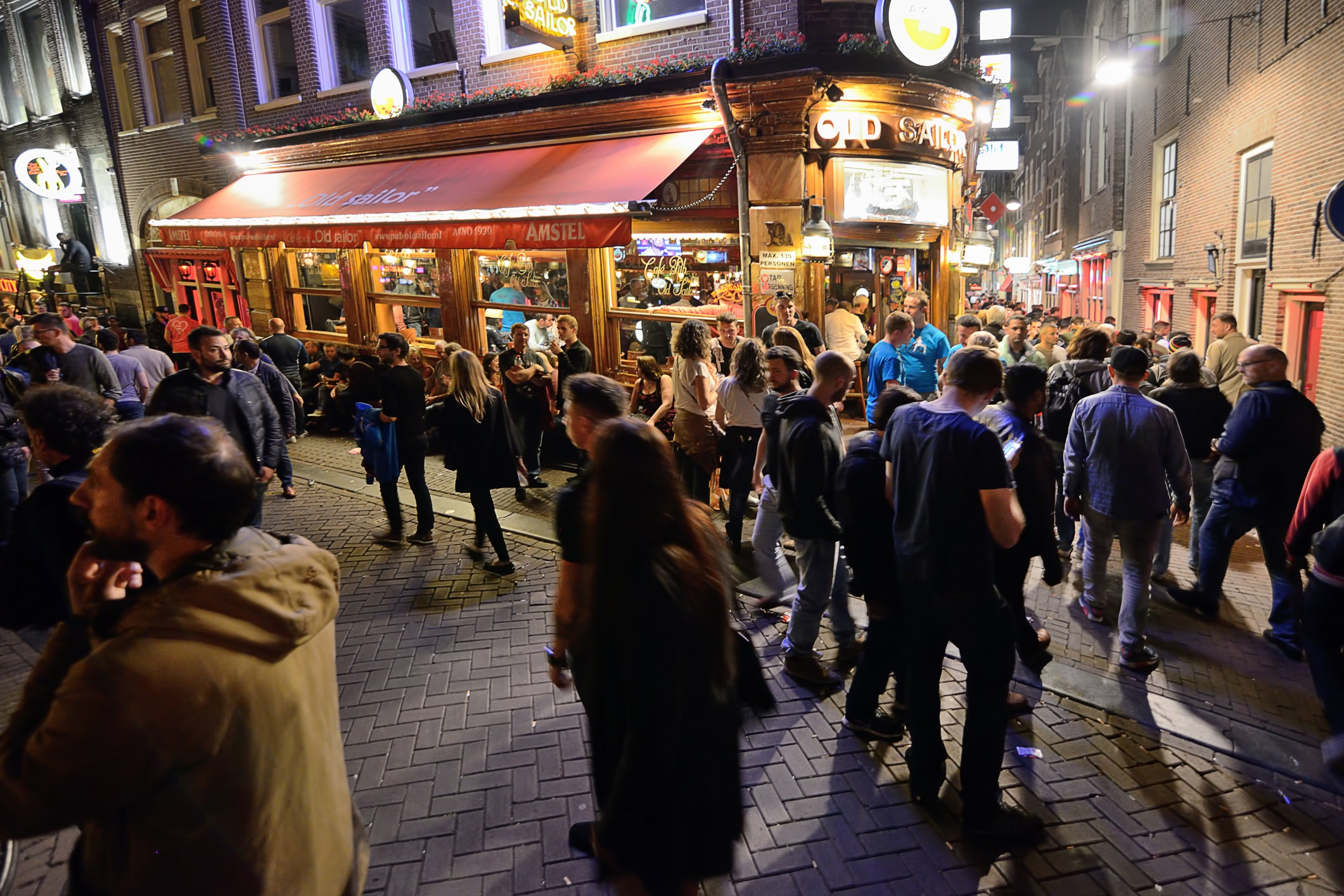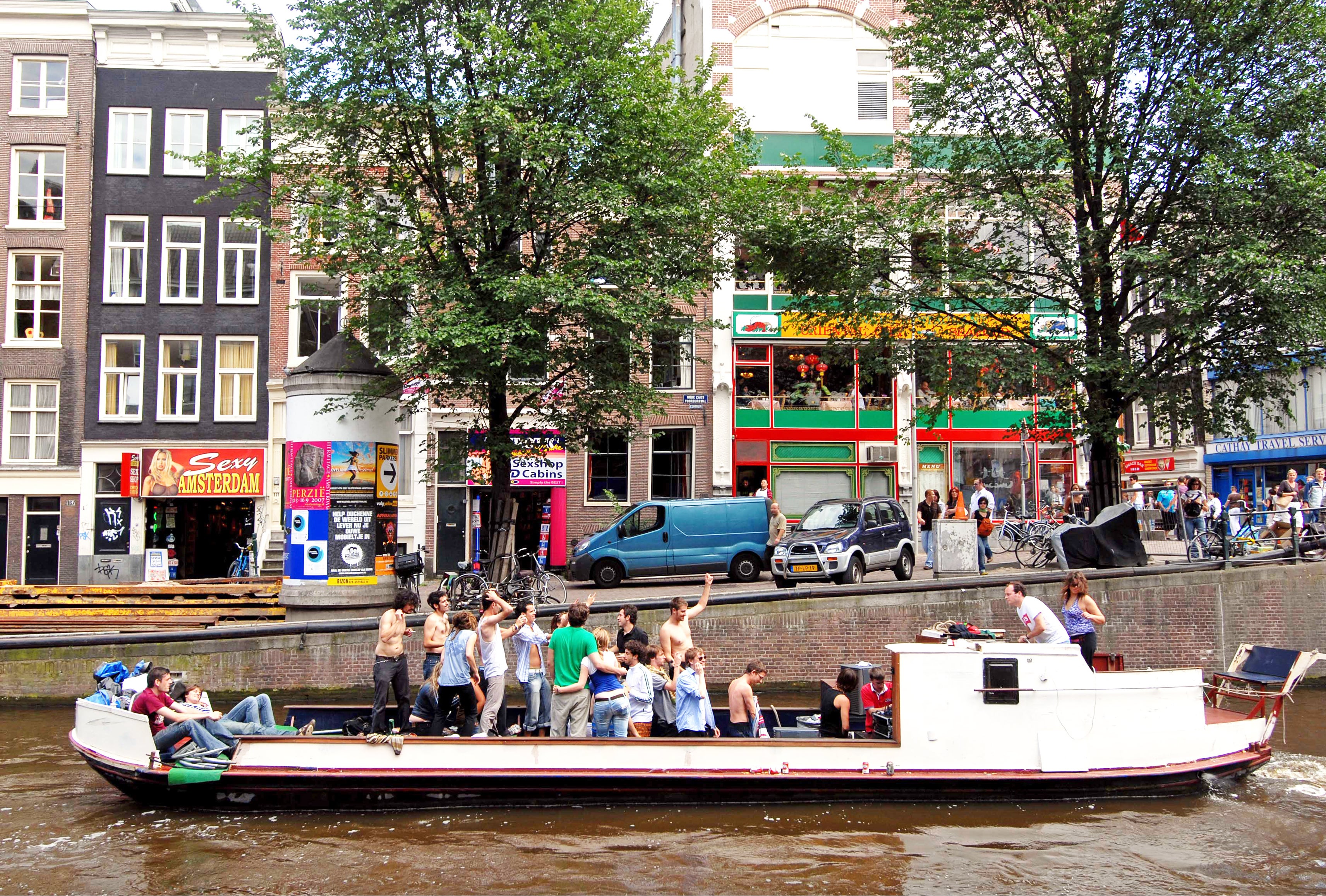The Independent's journalism is supported by our readers. When you purchase through links on our site, we may earn commission.
Why Amsterdam is completely justified in targeting obnoxious ‘Brits Abroad’
We really should strive to be a more than a ‘necessary evil’ for destinations to put up with, argues Benjamin Parker

Your support helps us to tell the story
From reproductive rights to climate change to Big Tech, The Independent is on the ground when the story is developing. Whether it's investigating the financials of Elon Musk's pro-Trump PAC or producing our latest documentary, 'The A Word', which shines a light on the American women fighting for reproductive rights, we know how important it is to parse out the facts from the messaging.
At such a critical moment in US history, we need reporters on the ground. Your donation allows us to keep sending journalists to speak to both sides of the story.
The Independent is trusted by Americans across the entire political spectrum. And unlike many other quality news outlets, we choose not to lock Americans out of our reporting and analysis with paywalls. We believe quality journalism should be available to everyone, paid for by those who can afford it.
Your support makes all the difference.What do Golden Age canals, care-free two-wheeling down the road and seeing museum after world-class museum have in common?
They’re all top things to experience in Amsterdam, the Netherlands’ vibrant capital.
This week, the city’s been in the spotlight after launching a new campaign warning British tourists seeking a “messy” weekend to stay away. UK travellers attracted to the city’s permissive culture, which includes its Red Light District and cannabis cafes, are being encouraged to go elsewhere – with good reason.
The most surprising thing about the news is that anyone could find this approach the least bit surprising. UK travellers are well aware of their unsavoury “Brits abroad” reputation. In a 2019 YouGov study, Britons were the most likely to take a negative view of their own compatriots, with 57 per cent taking an unfavourable opinion of their fellow countrymen and women as tourists.
In a remarkable show of self-awareness, the research also showed that Brits are the most likely to think that the locals in foreign destinations take a dim view of us as holidaymakers. Around six out of 10 of those questioned thought that residents might have a negative opinion of British tourists, and only 23 per cent believed that we are gladly received.
The faux outrage around the Amsterdam campaign demonstates a willful ignorance of our own well-documented shortcomings, and shouts of “discrimination” on social media are laughable; lack of access to a “stag arrest” (read: ‘hilarious’ prank before being taken to a stripper) is hardly a human rights violation.

Nor is it the first time ‘Brits on tour’ have had to contend with new rules prompted by our over-indulgence. In some parts of the Balearic Islands, those staying in all-inclusive resorts are limited to six alcoholic drinks per day. Other areas have prohibited happy hours, open bars, organised pub crawls and party boat trips. A decade ago the mayor of Malia, on the Greek island of Crete, threatened to keep boozing Brits in “special zones”to be “closely monitored”.
Our boorish behaviour abroad can safely be filed under ‘why we can’t have nice things’, joining such shameful examples as the drunk, flare-up-the-bum louts who made headlines ahead of the Euro 2020 final at Wembley. Yes, the vast majority of people remained without flares in their rear-ends, but bad behaviour is common enough that the unpalatable impression of us as a nation persists.
My first European holiday after returning from living in Australia was, funnily enough, to Amsterdam. I was travelling solo and struggled to get into bars as doorways were blocked by packs of inebriated Brits proudly boasting how many hours they’d been knocking back the booze. An otherwise charming city loses something of its appeal when you see the stone pavements of the medieval centre getting splattered with piss and vomit, or groups of men leering at and terrorising the girls behind the Red Light District’s famous windows.
For those of us who prefer a getaway devoid of mindless chants, intimidation and public defecation, the sad truth of the matter is we might well weigh up prospective destinations by asking: where can I best avoid my fellow countrymen?
I do understand it, by the way. Most of us have had crazy nights out at some stage, ones that leave us filled with regret and battling the dreaded “hangxiety” (hungover anxiety) the morning after. There’s something about group intoxication – pack mentality? – that can make us forget common courtesy and unleash our more obnoxious side. Considering our collective repression as a nation, and the fact that alcohol features heavily as a national pastime, perhaps it’s not surprising we step over the line when we’re away.
And it does feels wrong to instruct people on how to behave on holiday, when they’re just trying to cut loose and have fun. The approach should be live and let live, surely?
It’s the fact that we can’t seem to “let live” that remains our downfall. It’s a scene repeated year after year: hordes of British tourists descend to incredibly beautiful spots with scant regard for the residents – or the impact that’s left long after they’ve vomited in the town square and headed home. We’re quick to chastise this type of behaviour when it’s a domestic night out; a whiff of foreign sea air or the fact that cars drive on the right-hand side isn’t licence to disrespect at will.
The go-to defence is that this is a class issue, and that any attempt to discourage the binge-drinking, over-the-top holiday comes from a place of snobbery. It’s true that many of the suggested measures to tackle anti-social behaviour, such as a minimum price for flights and tourist taxes, could see some budget travellers priced out – and that hardly seems fair.
The trouble is, there’s a cause and effect in play. Based on the past behaviour of British tourists, you can’t blame destinations for seeking change. Earlier this month, María Dolores Corujo, the head of Lanzarote’s local government, said she wanted to attract a “higher-quality” tourist for the Canary Island, with a particular focus on German holidaymakers. They’re the ones “who spend more when they’re here and [move] us away from mass tourism,” she added. (The Spanish Tourist Office in the UK was quick to underline that the country would not “discriminate by type of visitor” – half of all tourists who visit Lanzarote are British.)
The world is reframing how we should travel in the face of environmental concerns and the cultural impact of overtourism. Booze-tourism doesn’t cut it anymore. Respect of a location should be a given, regardless of whether you’re on a business trip or a stag do.
Brits have been described as a “necessary evil” in the past; a demographic to be endured, if not quite tolerated, because our tourist pounds are so important to the survival of destinations reliant on visitors. Surely as a nation of travel lovers, we can aim a little higher than that?
Join our commenting forum
Join thought-provoking conversations, follow other Independent readers and see their replies
Comments